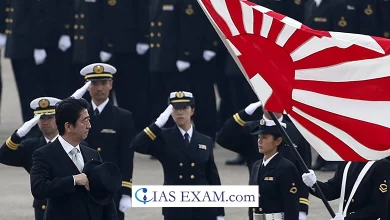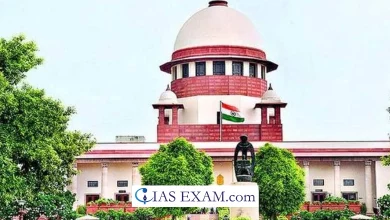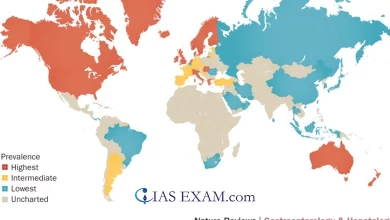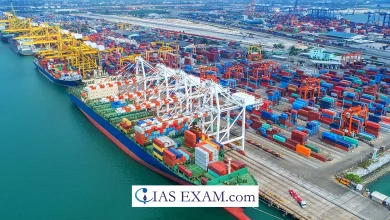Daily Current Affairs for UPSC
Activists Alert PM to Vital Anti-TB Drug Shortage
Syllabus: Health [GS Paper-2], Science and Technology[GS Paper-3]
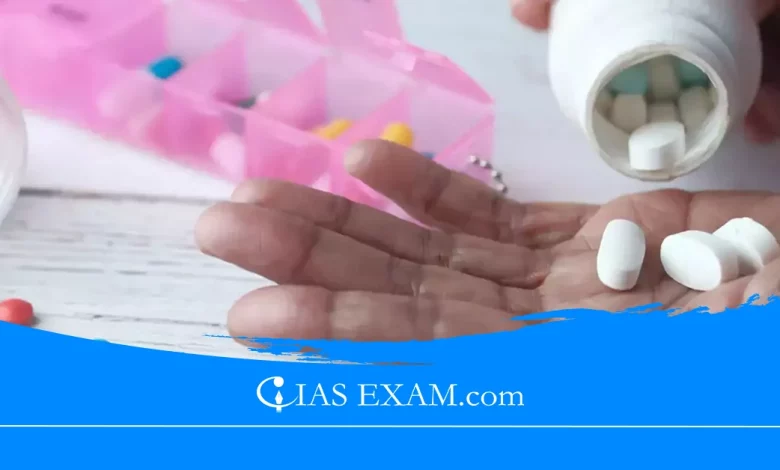
Context
Activists, public health experts, and survivors sent a letter to the Prime Minister before World Tuberculosis Day on March 24th, urging immediate action to combat the shortage of anti-TB drugs.
Key Points
- The letter emphasises the scarcity of a crucial drug used to treat drug-sensitive tuberculosis (DS-TB).
- As of February, there is a shortage of first-line drugs such as Isoniazid, Rifampicin, Pyrazinamide, and Ethambutol.
- The letter calls for immediate action before World Tuberculosis Day on March 24.
- This shortage specifically impacts the availability of drugs necessary for treating DS-TB.
Details about TB drug shortage
- The stock problems of 4FDC and 3FDC drugs, those that serve as an important treatment for drug-sensitive tuberculosis (DS-TB), have turned out to be critical for the TB patients.
- Time lags in treatment imposed the risk of body drug accumulation, which makes patients return to the primary stages of the disease, and it is more difficult to treat it effectively.
- This shortage also stresses the TB program as many unwanted, additional and expensive interventions it served.
- The stockouts have been pervasive and threatening to the efficacy of the DOTS and the National TB Elimination Programme improvement respectively. Patients are actually more likely to get drug resistant MB and their treatment is hindered.
- Decision to make this diversity of drugs available in the market without interruption is a crucial thing that needs to be done. The supplying of drugs is done through a DOTS strategy that demands consistency and continuous provision.
- In addition, without these needed medications, the program would be negatively affected in the effective treatment of the disease and thus the appearance of drug-resistant TB strains become common.
Impact of drugs shortage
- According to the global TB report of 2023, India accounts for 2.8 million cases of TB, which is 27% of the global burden.
- The case fatality ratio is 12%, meaning that out of 100 TB cases, 12 result in death. India also has 1.1 lakh cases of Multidrug Resistant TB, further highlighting the urgent need for adequate drug supply to effectively combat the disease.
- India has the highest burden of TB in the world, with a shortage of critically required drugs affecting the treatment of patients.
- The National TB Elimination Program (NTEP) emphasises the need for an uninterrupted supply of quality drugs for Directly Observed Therapy Short Course (DOTS) to be effective.
- The lack of access to quality TB drugs can lead to the emergence of drug-resistant strains, making treatment difficult and costly.
- This shortage poses a significant risk to those suffering from Multidrug Resistant TB, impacting treatment outcomes and hindering India’s goal of eliminating TB by 2025.
Government initiative to tackle the Issue
- PM TB Mukt Bharat Yojana targets at bringing together all communities who joined TB patients during the treatment and accelerate the course towards a TB-free country.
- New treatments to Bedaquiline and Delamanid medicine which have the ability to resist the drug had been invented.
- It is not by today but to the National TB Control Program that purchases and distributes anti-TB medications to different states.
- As if the direct financial support of Rs. 500 per month per TB patient is provided by Nikshay Poshan for nutrition.
- The creation of a universal drug susceptibility test is a component of this particular initiative and all the new TB diagnostics include drug resistance testing.
Way Forward
- Quickly address any shortages in drug supply to prevent interruptions in supply. Utilise resources and coordinate actions to minimise stockouts.
- Implement improved monitoring and reporting procedures.
- Enhance systems for tracking drug availability and inventory levels.
- Promote community participation in identifying and reporting shortages to facilitate prompt responses.
- Implement a plan for sustainable progress over time.
- Improve the procurement and distribution systems for drugs, establish effective inventory management practices to avoid shortages, and support the development of local manufacturing capabilities to decrease reliance on imports.
Source: The Hindu
UPSC Mains Practice Question
Q.Discuss the significance of activists alerting the Prime Minister about the shortage of vital anti-TB drugs. What are the potential consequences of such a shortage on public health, and what measures can be taken to address this issue effectively?





.png)
